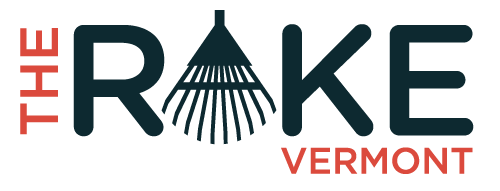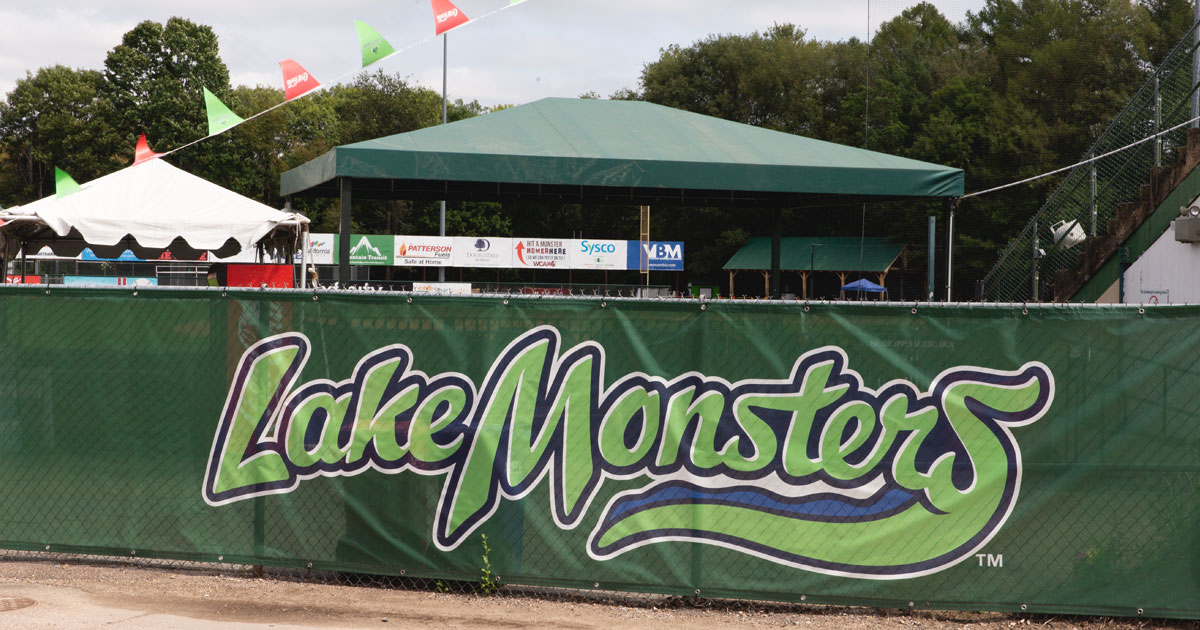On August 20, the Vermont Lake Monsters were crowned champions, defeating the Pittsfield Suns 3-2 at Centennial Field in their inaugural season in the Futures Collegiate Baseball League. The feel-good story garnered considerable local media attention throughout the summer, tracking the team’s progress and celebrating that baseball was once again spared from extinction in Burlington. What wasn’t covered is the team’s new ownership group, which is headed by the founder of a venture capital and private equity firm that exploits professional baseball players from marginalized and low-income backgrounds through multimillion dollar, high-interest loans, causing a moral dilemma for local sports fans and community members seeking simple summer entertainment.
In December 2020, the former short-season Single-A farm club of the Oakland Athletics were among the 42 minor league baseball teams that lost their affiliate status in a restructuring of baseball’s development system. By February, then team owner and Lake Champlain Ferries operator Ray Pecor announced the team had been sold to Nos Amours Baseball Club, LLC, led by Chris English. The team would join the Futures Collegiate Baseball League, an amateur wood-bat league for college baseball players. It made headlines across Vermont, with coverage in nearly every major media outlet in the state. None stated English’s role as the head of a private equity firm, which views baseball players—mostly from the Caribbean or South America—as speculative assets who can yield the firm a profit after players borrow large sums of money at predatory, high interest rates.
English, who has had full ownership or a stake in four independent professional or collegiate league baseball teams in his lifetime, is the founder of RockFence Capital, whose website states it provides “long term financial security for elite professional athletes.” It does this by offering “upfront, guaranteed payment to baseball players early in their career” and, according to a slideshow on the company’s homepage, providing “financial security and leverage in future contract negotiations.” Further information and details on RockFence Capital’s website are placed under password protection.
These “guaranteed payments” are loans, offering millions of dollars to professional (mostly minor league) baseball players, with interest rates of 12 to 14 percent, according to an article on Cleveland Indians outfielder Franmil Reyes in Spanish-language outlet Diario Libre. Comparatively, the current national average 30-year fixed mortgage rate for a home is 3.3 percent. Reyes, whose career earnings total $1.7 million in three years of MLB play through the 2021 season, received a $4.8 million loan from RockFence in 2018, prior to making his major league debut.
A majority of players who accept loans from firms like RockFence do so when their annual earnings are low, particularly in the minor leagues. Salaries of minor leaguers have long been scrutinized, with most players living below the poverty line. Before MLB’s realignment of the minors, the average weekly minimum salary for a Single-A ball player (such as former Lake Monsters players) was $290 per week. It was then raised to $500, the equivalent of earning $12.50 per hour full-time. Triple-A, the level right below the majors, saw minimum salary bumps from $502 to $700 per week, according to the Associated Press. On average, Single-A salaries were $6,000 per year, while Triple-A salaries averaged around $15,000 per year for seasons that typically run from April to September. Many are not paid at all during the offseason. In 2018, Major League Baseball successfully lobbied congress to pass the “Save America’s Pastime Act” in a spending bill, which allowed the league to continue to pay below minimum wage, as it deemed minor leaguers to be seasonal workers despite their skills and value to the organizations.
Players’ low salaries don’t go far in today’s housing market, and with few exceptions they are on the hook for housing. The National Low Income Housing Coalition found the nationwide average income needed to afford a one-bedroom apartment is $816 per week (and over $1,000 per week in Burlington), well above minor league minimums. It has forced players into such situations as nine players sharing a two-bedroom apartment because they could not afford to live in the communities they play in. There have been no reported cases of this occurring in Vermont, which like many other organizations has long relied on host families to house players during the season in exchange for light compensation.
League policies created a gap between what players are paid and what they need to live, and into that gap step firms like RockFence. “If minor league players were compensated at the level that was anything approaching their fair market value, there would be absolutely no need for these kinds of companies to exist,” says Harry Marino, executive director of Advocates for Minor Leaguers.
As for Reyes, his on-field performance this season means he is currently in a position to earn a much higher multimillion dollar salary via arbitration at the conclusion of the season. He also could sign a new contract extension with Cleveland in the offseason. If he were to never see a raise from his current $602,400 salary, it would take eight years using his entire income just to pay off the principal of $4.8 million, not including the $72,000 in annual interest. RockFence stands to recoup the initial loan and make over half a million dollars from interest.
Reyes’ loan is far from the highest amount that RockFence offers to athletes. The firm gave Atlanta Braves all-star outfielder Ronald Acuna Jr. a reported $10 million loan according to The Athletic early in the 23-year-old’s career as a minor leaguer. Acuna Jr., who was signed as an international free agent by the Braves at age 16, reached the majors at age 21 and signed an eight-year, $100 million contract extension in 2019.
The contract, which does not kick in for an annual average rate of $17 million per season until 2022, runs through 2028, when Acuna Jr. will be 31 years old. It is difficult for players in their thirties to secure nine-figure contracts in free agency, and Acuna Jr. is already underpaid relative to his peers. San Diego Padres superstar Fernando Tatis Jr. signed a 14-year, $340 million deal, and has posted comparable statistics to the Braves outfielder. However, Acuna Jr. was faced with having to make loan payments to RockFence the moment he reached the majors, which put him under pressure to agree to a long-term, below-value contract to repay the terms of his loan. This, despite RockFence’s claims that these payments offer leverage as players negotiate future contracts with their team.
English’s firm is one of several that have cropped up in recent years, investing in players’ futures to give them money now and take their portion when these players sign long-term multimillion dollar contracts. This includes firms like Big League Advance, which is the subject of lawsuits over its practice of taking a percentage of all future earnings, as they will with Tatis Jr.’s contract. These private equity firms also largely target young baseball players from impoverished backgrounds in Latin America and are the subject of intense controversy in the game.
RockFence and similar firms claim that if a player does not reach the majors, the player does not have to pay back the loan, interest, or the advance. They do, however, have to pay the taxes on the loans they receive, according to HBO’s Real Sports Podcast. Some, like Big League Advance founder Michael Schwimer, believe their firms are doing right by minor league baseball prospects. Schwimer told the Wall Street Journal, “I’m going to continue to stand up for them and continue to defend this option if they choose that they want to do it.”
As a minor league advocate and former minor leaguer himself, Marino feels these firms are taking cues from Major League Baseball, which bears some responsibility in the creation of RockFence and similar entities as a result of not paying living wages to minor leaguers. “I think they would acknowledge that the below-market compensation for minor leaguers is the market efficiency that they are exploiting with these models,” said Marino.
There are other concerns according to Marino. Not only does the existence of RockFence hinge on the underpayment of minor leaguers, but for those who do make it to the majors, it can financially hamper them as they have to start paying off a significant amount of money, plus interest. Then, it is a question of whether players are being made aware of the details of these loans and whether accepting these loans is a smart choice.
Marino isn’t alone. In fact, a former RockFence employee had reservations. Mark Appel, a once top prospect for the Houston Astros who left his playing days behind in 2017 before attempting a comeback this season, worked a short spell with RockFence. In an article from The Athletic, Appel, despite his support for RockFence’s mission, had reservations about selling the firm’s financial offerings to those who may not have needed it, stating: “I’m like, Dude, I don’t want you to do this product, because I don’t want to leverage any sort of relational equity in order to manipulate someone to buy into something they don’t need or want.”
While it is unknown how many players RockFence has offered loans to, it and other firms share a common theme: all publicly known clients are from Latin America, a region that has a long history of exploitation of its players by MLB and the Global North. Now, investment firms are continuing the trend. Marino notes that RockFence and others are taking a page from the majors’ playbook. Developmental academies in the Dominican Republic have a high number of players being paid nominal wages. Big league clubs believe they can see a high return on investment in these academies while paying little in costs and salaries, in addition to their minor league affiliates stateside. It’s especially true as some of the game’s biggest stars hail from the Dominican Republic and other Latin American countries.
“The idea of investing something in a significant number of players, especially Latin players, for the hope that one of them one day will help you recoup a significant number of dollars and cents, that general model is something that major league teams are doing, just like investment companies like RockFence or Big League Advance,” says Marino. “It’s a different business model, but the concept is the same.”
Knowledge of English’s business practices remains low among Lake Monsters fans. Many who spoke to The Rake Vermont at games in August did not know anything about English or RockFence Capital. When told of the firm’s goals, most were surprised to learn about private equity firms creeping into the baseball landscape in general, and that Vermont is now connected to it through English’s ownership of the team.
“That’s very predatory,” said Keil Corey of Burlington.
“He’s like a [loan] shark basically, in a sense,” said John Pepin of Colchester when learning about RockFence Capital, “…that’s a little over the top.”
It puts fans in a conflicting position. Pepin says that without English, there might not have been a Lake Monsters this season, while noting that the interest on the loans offered by RockFence are “like a credit card payment,” in terms of Annual Percentage Rate (APR). That conflict is all too common for sports fans, who routinely have to deal with the dilemma of supporting teams they like, even when players, coaches, owners, or other fans engage in behaviors that go against their values.
“It makes me think about cognitive dissonance,” says Dr. Susan K. Whitbourne, a developmental psychologist and professor emerita at the University of Massachusetts-Amherst who is an expert on the psychology of sports fandom. “Here you have two sets of attitudes: I like going to games, and I tend to like the team, and then I don’t like the ethically dubious behavior, so now you’re in this classic dilemma.”
Whitbourne notes that while there is not much known on what will predict a fan’s tendency to choose how they’ll confront such dilemmas, it generally comes down to the stronger value you have or finding a balance. That includes seeking out evidence that you’re doing the right thing and looking for confirmation bias.
“You might say well, okay, this owner is terrible, but I’m turning to the players, I want to support my players,” said Whitbourne as a way fans will reduce their dissonance.
Given the Lake Monsters on-field success this season, combined with the doubts over the team’s future prior to the purchase of the club by Chris English, a fan’s ability to find ways to reduce the internal conflict of English’s business dealings can be a challenge, especially when games are viewed as a fun, affordable night out for the community. “Sticking to sports” is the easiest way to compartmentalize contradicting feelings, but in a climate where more athletes and fans understand that’s a fallacy, it’s about determining how much of the bad you’re willing to live with as a fan. As Whitbourne observes, there are ways in which fans acknowledge the bad, but if it is simply to fit their own biases, it fails to confront the issue.
“You can assuage your conscience, but then you haven’t really learned anything from this and no moral awakening to continue supporting a nefarious enterprise.”
With the first season in the books and a championship title to boot, English has grand designs, telling the Burlington Free Press in July that he plans to construct field-level luxury boxes and an indoor stadium club that will offer food service in the coming seasons. As investment into the team pours in, it’ll only leave fans wondering how to navigate the troubling aspects of Chris English and RockFence Capital while continuing to support baseball being played in Burlington.
“[Fans] shouldn’t have to have these problems,” says Whitbourne. “It’s not fair to the players or the fans.”
Matt Moore is a writer from Vermont. He is on the editorial collective of The Rake Vermont.



